- Home
- Linda Castillo
Down a Dark Road--A Kate Burkholder Novel Page 7
Down a Dark Road--A Kate Burkholder Novel Read online
Page 7
“Joseph, listen to me. I’m a cop. I can help you. I can look at your case. The evidence. Transcripts from your trial. If there’s something there, I’ll find it. I’ll find it and I’ll make sure it gets to the right people.” It’s not true; I have no intention of looking at anything related to his case. But I’ve no compunction about lying to him if it will end this and keep those children safe.
He looks at me like he wants to put his hands around my throat and squeeze. “You think this is some kind of joke? You think you can sit there and lie to me as if I’m some kind of fucking half-wit?”
“That’s not what I think.”
He stares at me for so long and with such intensity that sweat breaks out on the back of my neck. He looks desperate and dangerous, like a man at the end of a very short rope. “What happened to you, Katie?” he says with a quiet belied by the dark rage in his eyes.
“I grew up,” I say firmly. “Something you didn’t quite manage.”
He sinks against the back of the chair, looking strung-out and exhausted. For the span of a few minutes neither of us speaks. I study the tabletop between us and listen to the rumble of an engine outside, the occasional bark and hiss of a police radio, the rise and fall of an approaching siren.
“I’ll be the first to tell you I wasn’t a good husband to her,” Joseph says after a moment. “God knows she deserved better. I was a shitty father. An unreliable friend. I was a cheat, a liar, and a thief. I have a temper and I have a weakness for booze. I’m not proud of any of it.” He raises his eyes to mine, his gaze burning. “I’m a loser. But I did not fucking kill her.”
I stare back, assuring myself I’m not swayed. But for an instant, looking into his eyes, I catch a glimpse of the Amish boy I once knew. A thousand memories rush at me, a hail of spears sinking into places that are startlingly tender. The time he swam into a rain-swollen creek to save a stray dog from drowning. The day he got his ass beat by two bullies who’d pulled the underpants off a special-needs Amish girl. The time my brother started a fire in a shed and Joseph took the rap because he knew Jacob was in for a whipping.
“Joseph, do you have any idea how often cops hear that? Come on. I wasn’t born yesterday and neither were you. You have to give me something. Some kind of evidence or proof or at least a theory.”
To my shock, he offers a statistic instead. “According to the National Registry of Exonerations, since 1989 two thousand convicted people have been exonerated.”
“You’ve been reading up.”
“Desperate times … and a decent library.”
“All right,” I say. “You have my attention.”
He gives me a lackadaisical smile. “You’re quite the tough customer, Katie Burkholder.”
I ignore the comment. “Let’s start with this: If you didn’t kill your wife, who did?”
“I don’t know. The one thing I do know is that he’s still out there.” He sighs. “I always believed someone would figure it out. Find the truth. I never imagined it going this far.”
“What was the motive?” I ask. “Why would someone kill an Amish woman? A mother of five?”
“I can’t answer that. I don’t know. Naomi was always … the good one. Everyone loved her, including me.” He gives a wan smile. “I’m the one everybody wanted to kill. Yet here I am.”
The words reverberate in the silence of the kitchen, punctuated by the sounds of the police presence outside. The chirp of a police radio. The occasional blast of a siren. A voice coming over a loudspeaker.
“I know how all of this sounds,” he says.
I give him a hard look. “Crazy? Delusional?”
“Desperate. Far-fetched.” His mouth curves, but the smile does nothing to mask the sheen of bitterness in his eyes. “The cops said I had drugs and it was true. They said I was drunk; they were right.” Something lights up in his eyes, some dark emotion that’s both hot and cold at once. “But I have never struck my wife. Never. And I did not take her life.”
I’ve heard a hundred variations of those words and not once have I believed any of them. I don’t want to believe them now. But there’s something in the depths of his eyes that beckons me to listen, to look deeper. Am I biased because I grew up with him? Because he influenced my life in such a significant way? Or is it possible there’s some shred of truth to his words?
“You can’t fight the charges like this,” I tell him. “Not by holding me and your kids hostage. You can’t do that. It will not help your cause.”
Another silence, steely and brittle. We sit across from each other, staring at the tabletop. It’s so quiet I can hear the spring peepers outside.
“I always knew you’d make something of yourself,” he says after a moment. “I always knew it would be something … big and important.”
“I don’t see how you could have known such a thing,” I tell him. “I didn’t.”
He surprises me by laughing. “I bet Bishop Troyer wasn’t happy about it.”
“He had no say in the matter.” When he raises his brows, I add, “I left when I was eighteen.”
He nods, thoughtful now. “How are Jacob and Sarah?”
“They’re both married. I have nephews and a niece.”
“But no children for you?”
I say nothing.
“Are you close to them?”
“Not like we were.” The old pain burgeons, but I shove it back. I’ve been estranged from my brother and sister most of my adult life. I’ve reached out to them several times since I’ve been back in Painters Mill, but because I left the fold their responses were tepid.
“I don’t think we’ll ever get that back,” I say.
“It’s a sad thing,” he says. “You were close once. I’m sorry you lost that. I know how much family means.”
I don’t respond. I don’t want him inside my head or knowing too much about me. I don’t want him to know how much those tattered relationships hurt when they slipped away.
He gives a resolute nod. “So are you any good at what you do?”
“Good enough.”
“Good enough to find the person who killed Naomi?”
I don’t know what to say to that, so I remain silent.
“You look the same,” he says after a moment.
Now it’s my turn to laugh, but it’s a short, uncomfortable sound. “I hope not.”
“The same only … better.”
“You were always good at dishing out the compliments,” I tell him. “Especially when you wanted something.”
“And you were always good at breaking the mold. Still are, aren’t you?” He doesn’t expect an answer and so I say nothing.
He stares at me as if seeing me for the first time. Scrutinizing me, as if my sitting here at this table with him is somehow shocking.
After a moment, he speaks in a low voice. “As fucked up as all of this is … I still wondered if it would be you who came tonight.”
“It’s my jurisdiction.”
“I’m glad I got to see you again.”
A softness unfolds inside me, an uncomfortable mix of nostalgia and melancholy, the latter because the sweet boy I once knew took a wrong turn somewhere along the line and more than likely there’s no coming back.
He laughs abruptly. “Do you remember that time the pigs got out of their pen and it was just you and Jacob and I to round them up?”
Despite the situation, I find myself smiling. I tell myself that reminiscing might help me gain control of the situation, soften him up, get him to come to his senses, but that’s not completely honest, because in that instant he’s the old Joseph I once looked up to. The Amish boy I was half in love with and loyal to till the end.
“Must have been a dozen pigs running around,” I say.
“Rooting up the garden. Gobbling up all the corn and tomatoes.”
“Not to mention Mamm’s peonies.”
“We got an earful about that, didn’t we?” He barks out another laugh. “You and I trapped that big s
ow between the barn and the silo.”
I surprise myself by laughing, too. It’s such an inappropriate, out-of-character reaction that I set my hand over my mouth to smother it. Chief of Police Kate Burkholder would not be laughing with this man, a prison escapee and convicted murderer. But thirteen-year-old Katie with her unfettered sense of humor and reckless heart would laugh until tears streamed from her eyes.
“You climbed onto her back and tried to ride her back to the barn,” I say.
“She bucked me off halfway there.”
“You never were a very good rider.”
“She was so traumatized she ran all the way back to the pen.”
Our laughter commingles, overriding the sounds of law enforcement outside, the weight of the situation. And for the span of several seconds, we’re teenagers and our biggest problem is how to finish our chores so we can go swimming in the creek, or to the woods for a game of hide-and-seek.
Reality intrudes when my phone vibrates on the table. I glance down at the caller ID, but I don’t recognize the number. Evidently, Mona has passed my number on to the sheriff’s department or BCI. More than likely, they want to know what the situation is. What King’s intentions are. If he’s armed. If anyone has been hurt. I let the call go to voicemail.
Sobering, I make eye contact with King. “Sooner or later I’m going to have to answer that.”
“I know.” The last remnant of his smile fades, and for the first time, he looks frightened. “I didn’t kill her,” he whispers, the softness of his voice making the words somehow more powerful.
I stare at him, suddenly angry with him for putting me in this position, for expecting me to believe him when my every instinct is warning me not to, for asking me to do something I don’t want to do.
“I need more than just your word,” I say.
He tightens his mouth. “Will a witness do the trick?”
CHAPTER 6
Disbelief wells inside me. “A witness? Who?”
“Sadie.”
My last vestige of hope sinks. The disappointment that follows is bitter and deep. “You know what, Joseph? I’ve heard enough.” I rise abruptly, but he reaches out, sets his hand on my arm.
“Sit the hell down and listen to me,” he hisses.
“Let go of me.”
He surprises me by obeying.
I sink back into the chair. “Joseph … Sadie?”
“She saw a man come into the house that night,” he tells me. “She saw him, Katie. In the hallway, outside our bedroom. He had a shotgun in his hands.”
I’m not sure what to make of his assertion. What does he possibly hope to accomplish? I read enough about the case to know the kids were in the house the night of the murder. It’s common knowledge. What kind of man drags a five-year-old little girl back into such a nightmare scenario?
“That’s ridiculous.” I keep my voice level, but I hear the hard ring of anger in it. “Investigators and a social worker with Children Services interviewed those kids. All of them. Multiple times. Any knowledge of the crime would have been uncovered in the course of those interviews.”
“It was.”
“I don’t believe you.”
“She told them what she saw. But because of her age no one took her seriously.”
“Joseph, she was three years old.”
“I know how old she was!” he shouts.
“A child that age would be considered an unreliable witness.”
“You have to understand something,” he tells me. “Sadie is not like most children her age. She’s … wise beyond her years. Mature for her age. Smarter than me. Naomi, even. This child of five … Katie, she already knows her mind.”
He’s right about the girl. I discerned her keen intellect within a few minutes of meeting her. For a five-year-old, she’s extraordinarily self-assured, poised, and well-spoken. That said, the murder of her mother was two years ago; Sadie was only three years old at the time. Mature or not, she is an unreliable witness.
King doesn’t seem to notice my skepticism. “Naomi and I knew Sadie was different when she was still practically a baby. We used to call her our little aldi hutzel.” Old woman. “She does not make up stories or tell tall tales,” he says. “I swear to you, Katie, I believe she saw the man who shot and killed Naomi.”
“How did you find out about it?”
“I didn’t until I was already in prison. No one bothered telling me,” he says darkly. “Sadie confided in Becky, my oldest. But Rebecca and Daniel wouldn’t let the children visit me. So Becky wrote me a letter. I’m sure you know the people at the prison read all the incoming mail. This one got through.”
“Did you tell your attorney?” I ask.
“Of course I did,” he says crossly. “I was certain her testimony would exonerate me. Maybe help the police find the man responsible. It gave me hope.” He shakes his head. “My attorney petitioned for Sadie to be interviewed.”
“And?”
He sags against the chair back, deflated. “They said she was too young to be reliable. The psychologist and social worker agreed. And they were afraid another interview would cause her further emotional trauma.”
I nod, saying nothing. Any cop who’s investigated a case involving child abuse or exploitation by a parent or guardian knows children will say or do anything to protect them. A traumatized child who’s lost a parent will likely turn to the other parent, even if the surviving parent has been cruel. In addition, kids who’ve experienced emotional trauma sometimes create fantasies to help them deal with it. It’s a protective mechanism, and I’ve seen it more often than I care to recall.
“Do you have the letter?” I ask.
He shakes his head. “They took it. The correction officers. They came in one night and searched my cell for contraband. I’d hidden it in my Bible. When I came back, it was gone.”
My phone erupts again. I glance down at it, see HOLMES COUNTY SHERIFF on the display.
“They need to know everyone’s okay,” I say.
“Answer it. Make it so I can hear.”
I hit SPEAKER and answer with, “Burkholder. You’re on speaker.”
“Kate, this is Mike Rasmussen. Mona tells me you’re in there with King and there’s a hostage situation. Is that correct?”
Rasmussen and I have worked together on a handful of cases over the last few years. He’s a good cop with a level head and nearly twenty years of experience under his belt. He doesn’t rattle easily. I can tell by the tone of his voice he’s rattled now.
“That’s correct,” I tell him. “Joseph and his children are here. Everyone’s okay.”
“He’s armed?”
I look at Joseph and he nods. “That’s affirm.” In the back of my mind I wonder if the Beachys keep a rifle in the house.
“Kate, are you in imminent danger?”
“No.”
“Is Mr. King listening?”
“He’s right here, sitting across the table from me.”
“All five kids there?”
“Yes.”
He pauses, stymied because he knows King will hear whatever he has to say. “Mr. King?”
“I’m right here.”
“Any chance I can talk you into coming out here to talk to me?”
“No.”
“What about the kids? Will you send them out? I’m sure both of us want to keep them safe, make sure they don’t get hurt.”
“They stay with me.”
“Mr. King, I don’t have to tell you this is a very serious situation, do I?”
“I know how serious it is,” the Amish man replies.
“It would be prudent for you to put down any weapons you have and come out to talk to me. I promise to listen.”
“Not going to happen.”
“What is it you want?” Rasmussen asks.
Looking annoyed, King nods at me to answer. I interject, “Mike, he wants us to look into the murder of his wife. He says he didn’t kill her.”
“A
ll right.” The pause that follows tells me he’s ruminating the statement, trying to think of a way to use it. “Is there anything I can do to help bring this to an end?”
“I’ll let you know.” King snatches the phone off the tabletop and ends the call.
“Joseph, this is so not the right thing to do,” I tell him.
“What else is there?” he growls.
“There are a dozen cops out there with guns. More on the way. SWAT, too, probably. A negotiator. This is not helping your cause.”
Shooting me a dark look, he rises and stalks to the window and parts the curtains to peer outside. The butt of my .38 is sticking out of his waistband. In the back of my mind I wonder if I could get to it before he stopped me. Red and blue lights flash on his face from the law enforcement vehicles parked at the end of the lane. He stares at them a moment, then drops the curtains and returns to the table.
“How many?” I ask.
“Too many to count.” He drops into the chair.
“They’re not going to go away.”
“I don’t expect they will.”
“Joseph, they’ll kill you. I don’t want that to happen.”
Sending me a withering look, he rises abruptly and strides to the living room. At the base of the stairs, he looks up at the landing and shouts, “Becky, bring Sadie down here!”
The girl shouts something unintelligible.
He reclaims his place at the table.
“Please don’t bring her into this,” I say.
“You still don’t believe me.”
“Joseph, what do you expect? What do you—”
“I expect someone besides me to care about the fucking truth!” he roars.
Movement at the door draws my attention. My heart sinks when the little girl steps into the kitchen. She’s wearing her nightgown and hugging that tattered, faceless doll to her side. No one bothered to wash her dirty feet before she went to bed, and the mud has caked. I can tell by the crease on her cheek that she’d been sleeping. Still, she’s happy to be back down here with us.
Behind her, the older girl—Becky—sets her hands on her younger sister’s shoulders. “Why are all those police cars parked on the road, Datt?” she asks.
“That’s for me to worry about, not you,” King tells her.

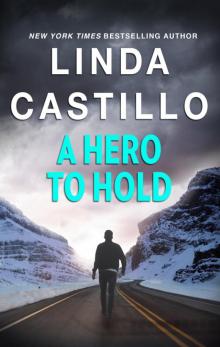 A Hero to Hold
A Hero to Hold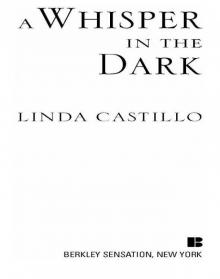 A Whisper in the Dark
A Whisper in the Dark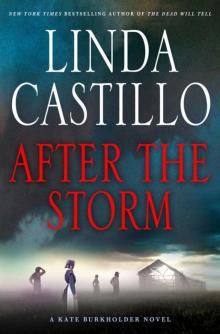 After the Storm
After the Storm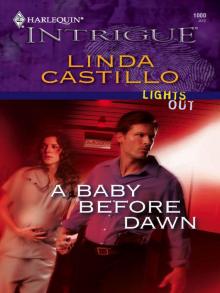 A Baby Before Dawn
A Baby Before Dawn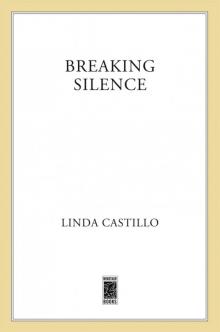 Breaking Silence
Breaking Silence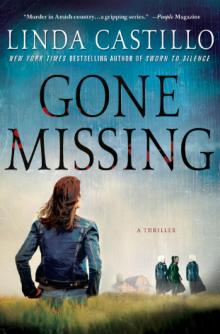 Gone Missing
Gone Missing Long Lost
Long Lost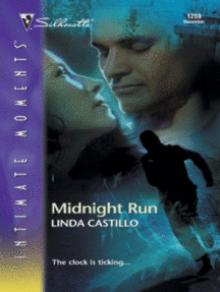 Midnight Run
Midnight Run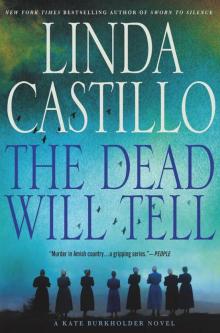 The Dead Will Tell
The Dead Will Tell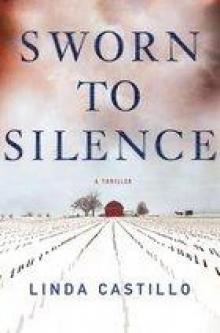 Sworn to Silence
Sworn to Silence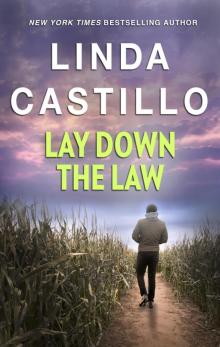 Lay Down the Law
Lay Down the Law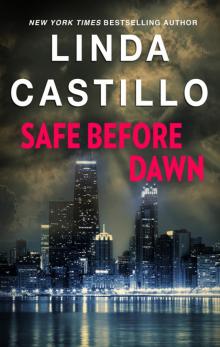 Safe Before Dawn
Safe Before Dawn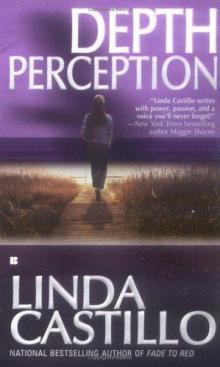 Depth Perception
Depth Perception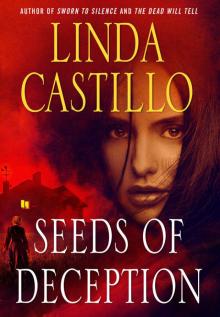 Seeds of Deception
Seeds of Deception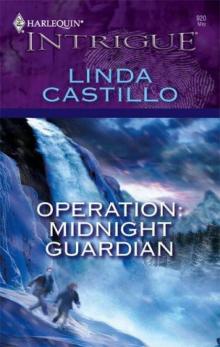 Operation: Midnight Guardian
Operation: Midnight Guardian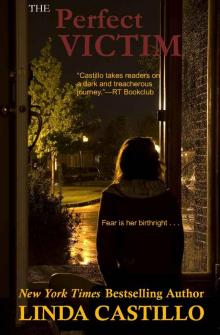 The Perfect Victim
The Perfect Victim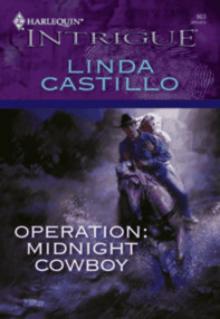 Operation: Midnight Tango
Operation: Midnight Tango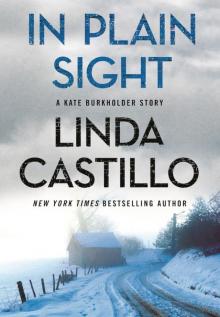 In Plain Sight (Kate Burkholder)
In Plain Sight (Kate Burkholder)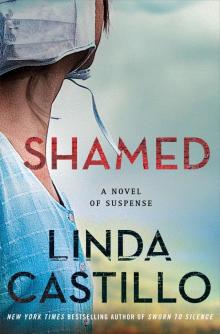 Shamed
Shamed Fallen
Fallen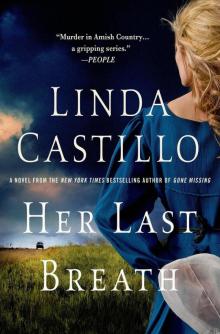 Her Last Breath
Her Last Breath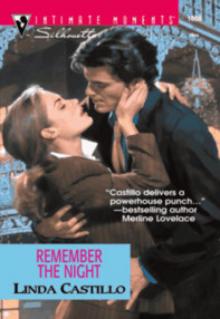 Remember the Night (Men in Blue)
Remember the Night (Men in Blue) Dead Reckoning
Dead Reckoning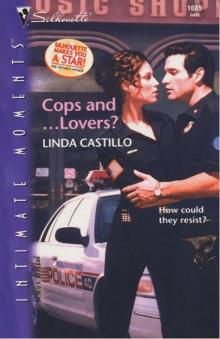 Cops and ... Lovers?
Cops and ... Lovers? The Pact
The Pact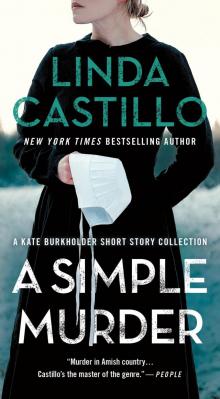 A Simple Murder
A Simple Murder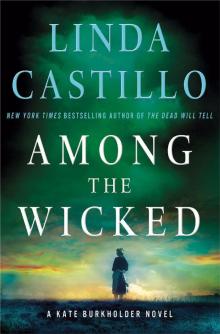 Among the Wicked
Among the Wicked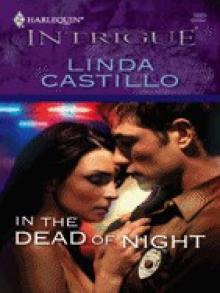 In the Dead of Night
In the Dead of Night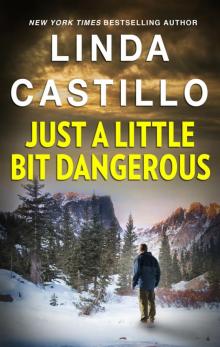 Just a Little Bit Dangerous
Just a Little Bit Dangerous The Phoenix Encounter
The Phoenix Encounter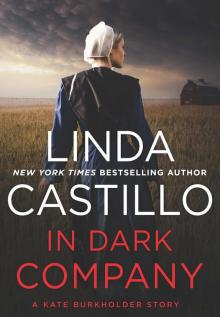 In Dark Company
In Dark Company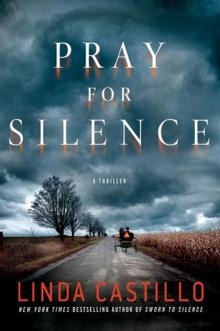 Pray for Silence
Pray for Silence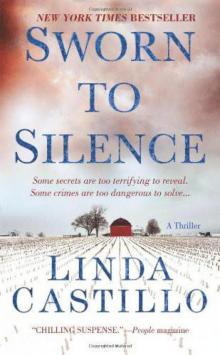 Kate Burkholder 01-Sworn to Silence
Kate Burkholder 01-Sworn to Silence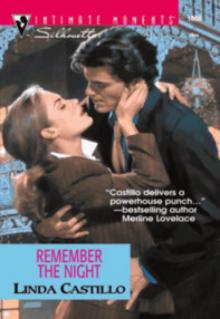 Remember the Night
Remember the Night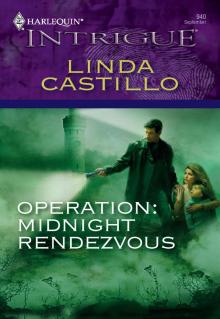 Operation: Midnight Rendezvous
Operation: Midnight Rendezvous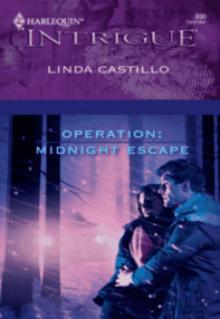 Operation: Midnight Escape
Operation: Midnight Escape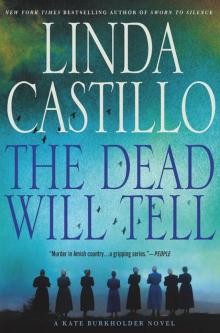 The Dead Will Tell: A Kate Burkholder Novel
The Dead Will Tell: A Kate Burkholder Novel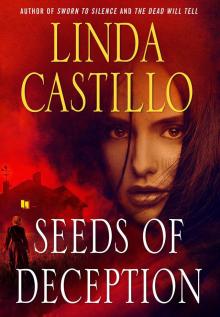 Seeds of Deception: A Kate Burkholder Short Story
Seeds of Deception: A Kate Burkholder Short Story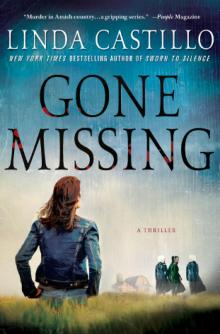 Gone Missing (Kate Burkholder 4) kb-4
Gone Missing (Kate Burkholder 4) kb-4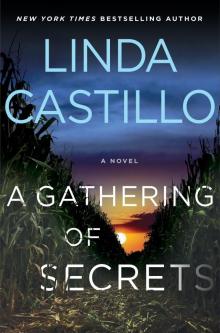 A Gathering of Secrets
A Gathering of Secrets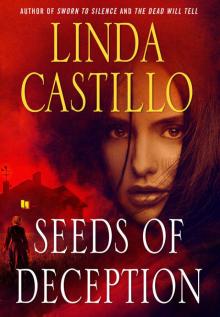 Seeds of Deception: A Kate Burkholder Short Story (Kindle Single)
Seeds of Deception: A Kate Burkholder Short Story (Kindle Single)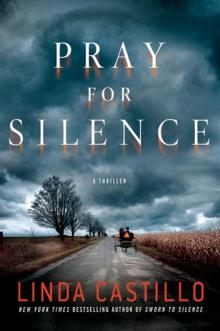 Pray for Silence kb-2
Pray for Silence kb-2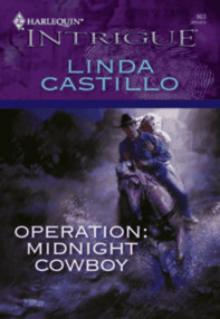 Operation: Midnight Cowboy
Operation: Midnight Cowboy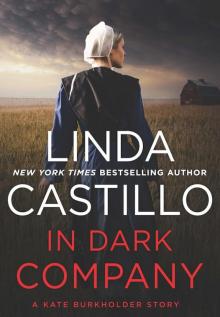 In Dark Company_A Kate Burkholder Short Mystery
In Dark Company_A Kate Burkholder Short Mystery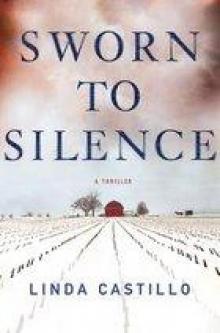 Sworn to Silence kb-1
Sworn to Silence kb-1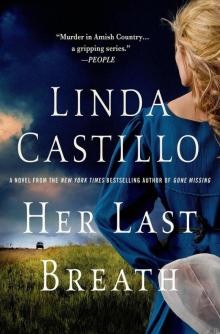 Her Last Breath: A Kate Burkholder Novel
Her Last Breath: A Kate Burkholder Novel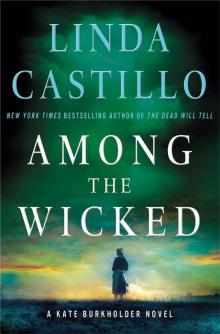 Among the Wicked: A Kate Burkholder Novel
Among the Wicked: A Kate Burkholder Novel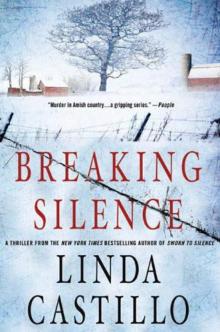 Breaking Silence kb-3
Breaking Silence kb-3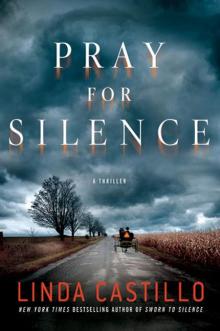 Kate Burkholder 2 - Pray for Silence
Kate Burkholder 2 - Pray for Silence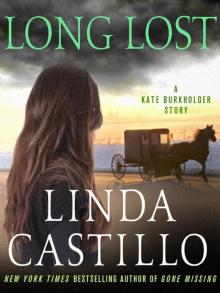 Long Lost: A Kate Burkholder Short Story
Long Lost: A Kate Burkholder Short Story